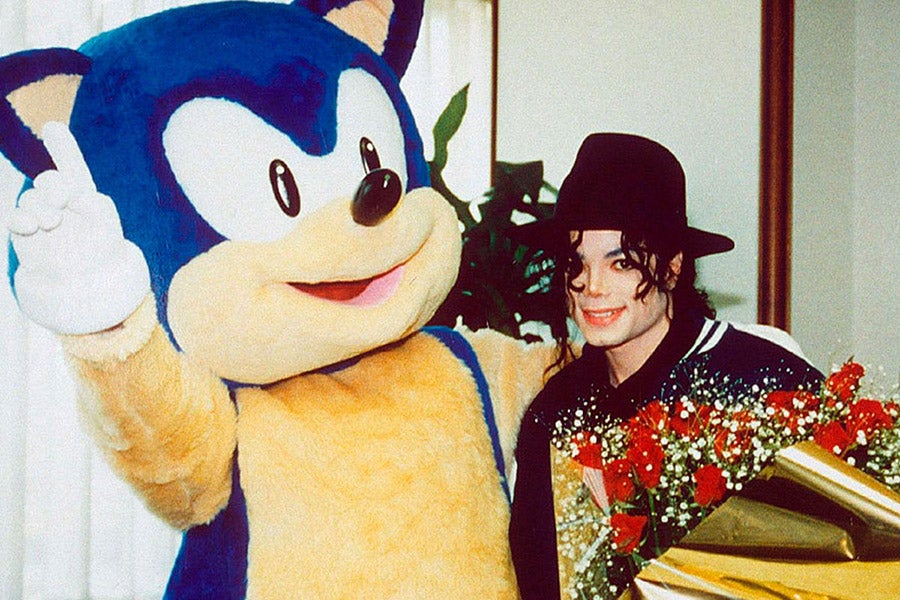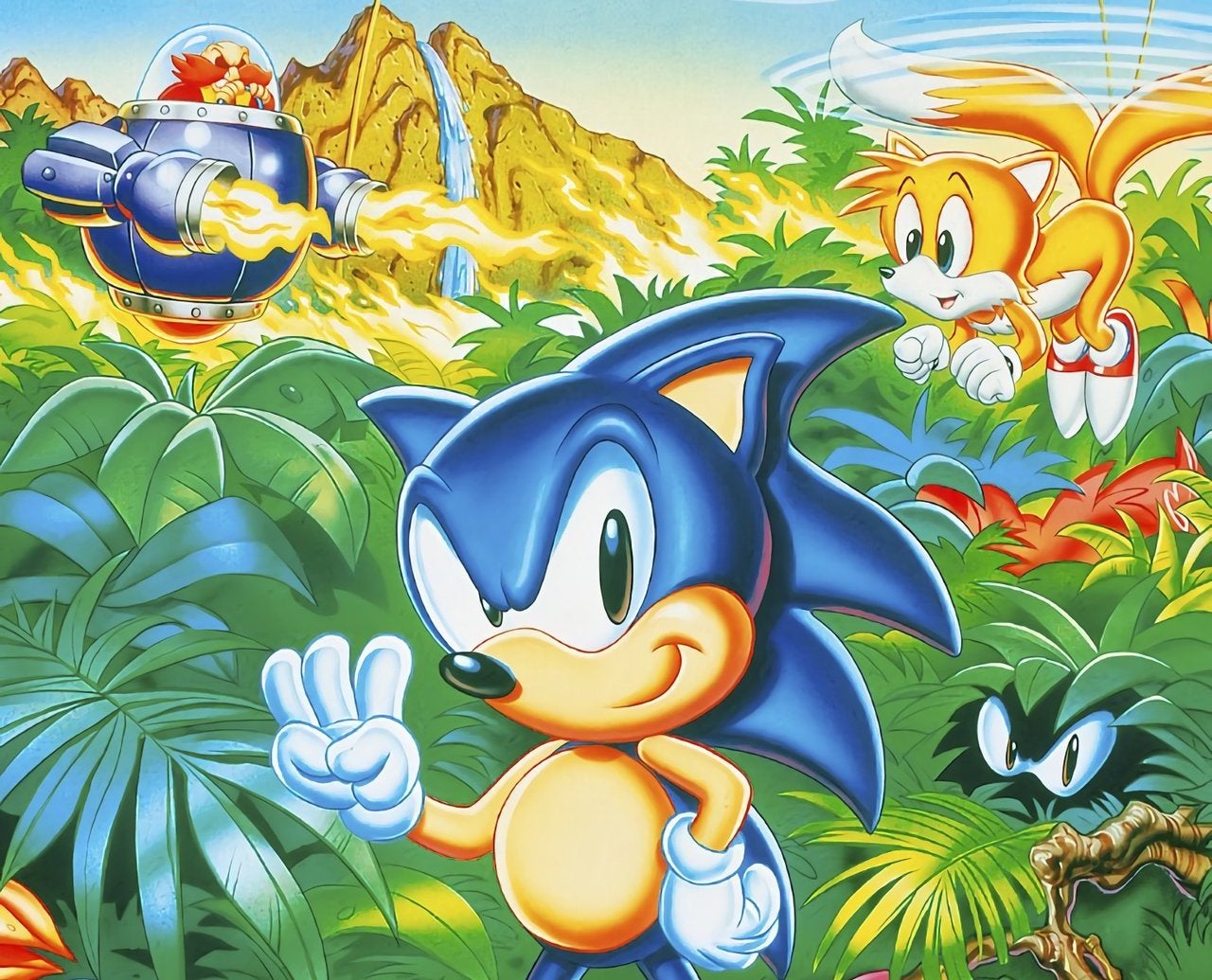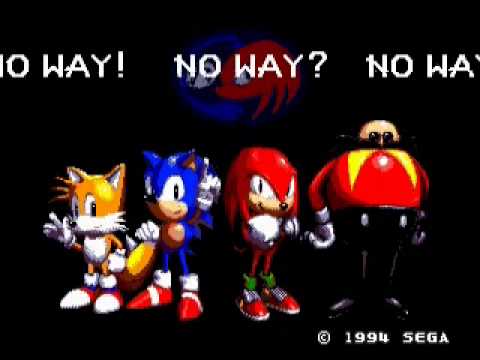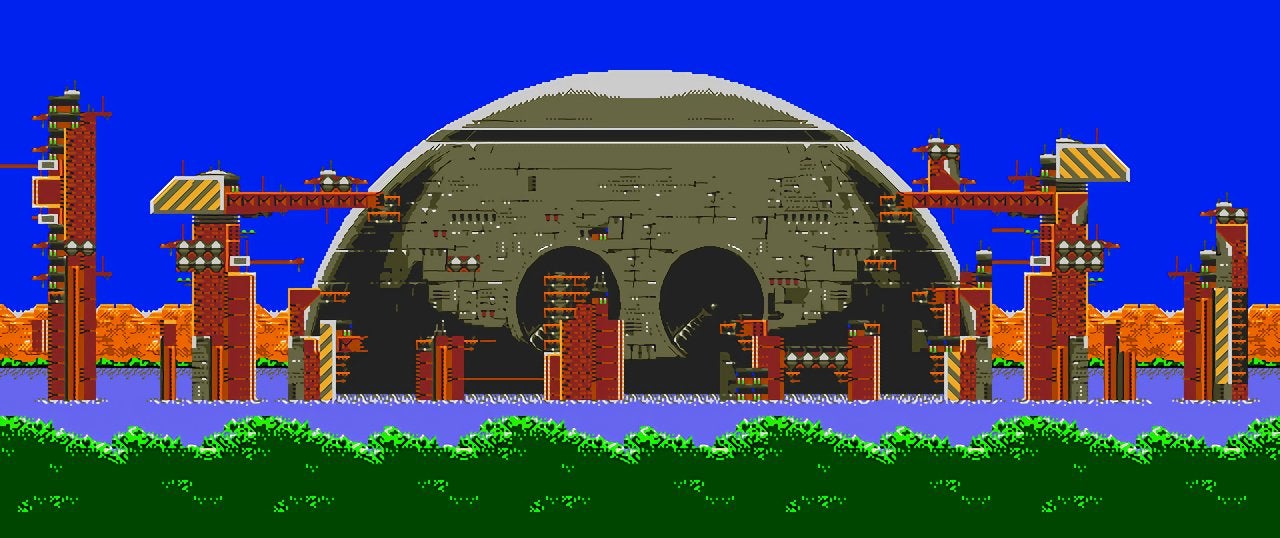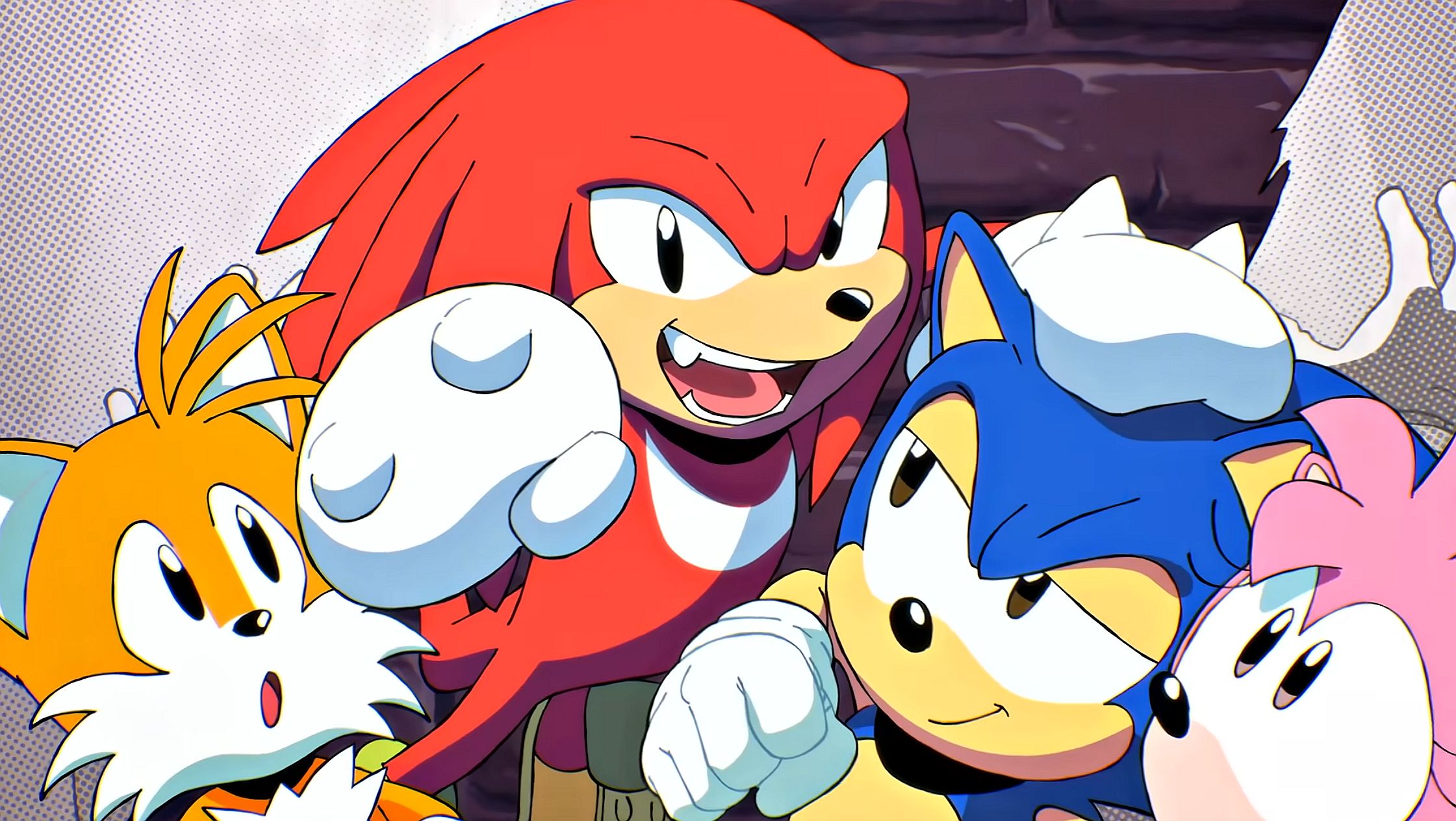I had been hoping that Sega might’ve resolved the issues around this soundtrack for this release, like many Sonic fans and game history nerds. The soundtrack has seemingly kept Sonic 3 from being re-released for many years now – so seeing it finally coming back seemed to suggest something had changed. This article was originally written before Sega had commented on the issue. Knowing the old story, VG247 reached out to Sega to ask, simply, if the full, original, Mega Drive/Genesis soundtrack to Sonic 3 would be featured in Sonic Origins. The company acknowledged the query, but also declined to answer - never a good sign. A little over a month later, however, and Sega has finally spoken out - and confirmed our fears. The question of Sonic 3’s score was finally addressed during an official Sega livestream by Sonic series social media and community manager Katie Chrzanowski, in a brief but quite clear statement. “I know one question that we’ve seen kind of over and over is, what is the situation on the music in Sonic 3 & Knuckles. While unfortunately we can’t use all the original sounds from the Sega Genesis version of the game, Jun Senoue has been working really hard to adapt the original music that was composed in 1993 for Sonic Origins.” If you’re not already in the know, elements of this statement might be a little confusing. Sega can’t use the “original sounds”, but is adapting the “original music”? What does that mean? This article will explain in full, but the short version is that a full soundtrack for Sonic 3 was composed at Sega - but then several tracks were replaced after a deal was struck with a major celebrity to write music for the game. That music appears to have rights issues, thus its removal - so it’ll be replaced by ‘beta’ music that never originally saw an official release, brought up to scratch by regular Sonic composer Jun Senoue. Who was the musical artist? How much involvement did they have? What tracks are effected, and what will the replacements sound like? Here’s a little history lesson…
The Hedgehog and the King
Did you know that Michael Jackson worked on Sonic the Hedgehog 3? It’s one of the most excruciatingly commonly told pieces of gaming trivia, so you probably did. Jackson’s work on Sonic 3 was part of a wider association with Sega that saw the star visiting Sega of America’s offices on a whim, a licensed game in Moonwalker, and the collaboration on the soundtrack of Sonic 3. But things went bad. Before Sonic 3 was completed, Jackson was accused of some pretty heinous stuff, including child molestation. Sega was naturally keen to distance itself from him as court cases and settlements loomed with his reputation in tatters. The official line from Sega remains that Jackson’s contribution to Sonic 3, which was never formally announced, never even existed. Fans who had connected the dots initially assumed Jackson’s music was cut from the game, with some accounts suggesting it was due to the molestation charges and others suggesting Jackson himself pulled his name and work from the game because he wasn’t happy with how it sounded on the Mega Drive sound chip. There’s quotes from people on all sides of the story backing up both narratives. The generally accepted truth today, however, is that the music wasn’t cut at all: a team of musicians led by Michael Jackson, if not Jackson himself, delivered some of Sonic’s most beloved music. Several melodies used in Sonic 3 became the basis for actual Jackson pop songs, too. Jackson himself isn’t credited in Sonic 3, but several names unfamiliar in the world of video game music appear: Brad Buxer, Bobby Brooks, Darryl Ross, Geoff Grace, Doug Grigsby III, and C. Cirocco Jones. These names formed Jackson’s writing team; they were musicians with a history of collaborating with him, and in the years since several of them have gone on the record talking about their experiences working with Jackson on Sonic 3. Just this month, Buxer went on the record stating that Jackson’s involvement with the game was minimal, but that he and others had worked on Sonic 3 at the star’s instruction. Others of the group claim Jackson was more directly involved. In a 2016 Huffington Post article, three of the six musicians are unequivocal: Jackson worked on the game, and the music made it into the finished product. “Oh, it did get in the game,” Grigsby is quoted as saying. “The stuff we handed in, the stuff we did, made it. To the game.”
Which tracks are by Jackson & crew?
As time went on, Michael Jackson’s work on Sonic 3 passed into internet myth status. A now sixteen-year-old YouTube exposé racked up millions of views. Sonic fans, among the best in the business at deconstructing and obsessively analyzing, began to figure things out. And in no time at all, people were pretty sure they knew which tracks were likely composed by Jackson and his team. While Sega has never formally confirmed any of this, the evidence is compelling: Carnival Night Zone: Sonic 3’s circus-like level features a few telltale Jackson signatures – but most notably it features identical notes to ‘Jam’, a Jackson song released not long before Sonic 3. It even features an identical sample – though played grainily through the Mega Drive sound chip. IceCap Zone: For years, people speculated that IceCap was a Jackson contribution, but there was no direct connection. Then, in 2008, new wave band The Jetzons released a new greatest hits compilation with a previously-unreleased track from the eighties titled ‘Hard Times’. Hard Times is practically identical to the iconic IceCap music in many sections – and the keyboardist of The Jetzons is none other than Brad Buxer, part of Jackson’s Sonic 3 writing crew. Buxer and the band have cashed in on the Sonic 3 connection in recent years, even releasing a vinyl pressing of Hard Times with an IceCap inspired pixel art cover. Launch Base Zone: Sonic 3’s final level, Launch Base, was always perhaps the most obvious Jackson contribution thanks to one obvious signature – a repeating sample of the word ‘Go’ being chanted in a way very similar to many Jackson songs. S3 Sub-Boss: Like Launch Base, you only have to listen to this to just… sort of know. The use of samples, a Jackson-esque ‘Woo’, and the general tone of the track. It’s just obvious. Come on now. Notably, this track gets replaced by the Sonic & Knuckles sub-boss theme when the two games are locked on and combined, removing it from the ‘full’ game entirely. S3 Knuckles’ Theme: Knuckles’ theme in Sonic 3 is directly connected to the sub-boss theme – it’s just the drum beat from that track, isolated in a simple loop. Again, this is replaced in Sonic & Knuckles and the locked-on complete version of Sonic 3 with a new, Sega-composed track. Competition Screen: Sonic 3 Credits: The last of the tracks fans now credit to Jackson’s team, the credits music of Sonic 3 actually takes the form of a sped-up version of the chord pattern used by Jackson two years later in the track ‘Stranger in Moscow’ – which suggests he’d been toying with this chord progression for a while. Notably, this track is also erased in the locked-on game, replaced with a new credits theme added in Sonic & Knuckles.
PC Changes and Prototype Revelations
For years, the above were speculated as the Michael Jackson contributions to Sonic 3. As well as the general evidence quoted above, there was one more factor; the PC version of Sonic 3, released years after the console original as the Sonic & Knuckles Collection. Notably, this version of the game cut several tracks – Carnival Night, IceCap, Launch Base, the Credits Theme, Knuckles’ Theme, the sub-boss theme, and the Competition Menu. Sounds familiar, right…? At the time, Sega said that these tracks had to be changed in order to be compatible with the MIDI audio drivers used in the PC version. That made sense for the sample-heavy tracks like Carnival Night and Launch Base, but less so for the themes without, such as IceCap and the Competition menu music. It may be the case that Sega at the time held the rights to republish the music, but not edit it – and the PC release had to have edited music for hardware compatibility reasons. In the end, each track was replaced with a new composition. For a long time, fans thought the replacements were hastily-written additions to get Jackson’s contributions out of the game. But then there was another twist just around the corner. In November 2019, Sonic fans discovered the Holy Grail: a prototype of Sonic the Hedgehog 3 dated November 1993 that pre-dates the game being fully split into two discrete titles, Sonic 3 and Sonic & Knuckles. The prototype was packed with fascinating developmental easter eggs, including a different level order and a move much like the Drop Dash (later officially introduced in 2017’s Sonic Mania). But the most significant discovery was, of course, musical. Specifically, the music tracks found in the PC version of Sonic 3 weren’t hastily-written replacements: they were apparently the original music tracks. Included in this prototype build are non-final Mega Drive sound chip versions of the non-Jackson versions of Carnival Night, IceCap, Launch Base, Knuckles’ Theme, the Competition Menu, and the Credits. The mini-boss also uses a different tune – the Sonic & Knuckles sub-boss theme. So, another wrinkle is added to this twisting narrative. It appears that Sega’s musical team composed a full soundtrack for Sonic 3, but then when the opportunity arose to have music composed by the hottest celebrity on the planet at the time, those tracks were replaced with the contributions by Jackson and his team. Then, when Sega wanted or needed to cut those tracks out for the PC port years later, it reinstated MIDI versions of the original prototype music.
Death and Taxes
While rumors swirled and Sega seemed uneasy about addressing them, for a long time it seemed like Sonic 3 wasn’t having any rights troubles at all. Sonic 3 was re-released repeatedly. In collections, it arrived untouched as part of Sonic Jam (Saturn, 1997), Sonic Mega Collection (GC, 2002 and PS2/XB, 2004), Sonic’s Ultimate Genesis Collection (360/PS3, 2009) and Sonic Classic Collection (DS, 2010). It also got a couple of stand-alone re-releases. In 2007, Sonic 3 hit the Wii Virtual Console with an unchanged emulated release. Then, in 2009, a version hit Xbox Live Arcade, and an emulated version also landed on Steam. All of these came complete with the Jackson-associated music. But then… the re-releases stopped. In 2018, Sega returned to the 16-bit collection with Mega Drive/Genesis Classics. These new console releases included Sonic, Sonic 2, Sonic Spinball, and Sonic 3D, but excluded Sonic 3 & Knuckles. The first two Sonic games and Sonic CD saw lavish native ports to mobile, but Sonic 3 was skipped. 3D versions of Sonic 1 & 2 came to 3DS, but the party stopped there. Even right now, Sega Ages and Nintendo Switch Online both have versions of Sonic 1 & 2 available on Switch… but again, Sonic 3 is excluded. Christian Whitehead, the dev primarily responsible for the Sonic mobile ports, even produced a Sonic 3 & Knuckles port proof of concept. Sega didn’t bite. When Whitehead finally got his chance to create Sonic Mania in 2017, it featured a mix of old and new zones, including three from Sonic 3 & Knuckles. It notably dodges anything associated with the Jackson music however, including the much-beloved IceCap. If we pop on our tin foil hats for a moment, one notable thing did happen between the 2000s and the 2010s which might have affected all of this: the 2009 death of Michael Jackson. Could it be that Jackson was quietly waving through re-releases of games that featured his music without royalties or compensation – but when he died and his family took control of his estate, they began to demand money from Sega? Likewise for his team of co-writers? The timing of Sonic 3 releases cutting off practically in line with his death with only a couple of small exceptions seems too heady a coincidence to ignore. Ironically, fans making a lot of noise about the collaboration and drawing attention to it may have made the desire for contributors to get their dues from Sega stronger. And, at least according to some involved, it does appear there is a legal question around the music. “I believe that there is a lawsuit going on or about to go on,” Cirocco Jones told one Sonic fan in a 2014 email exchange about his work on the game. “Sega owes a lot of people money from the Sonic stuff.” “You can contact my lawyer,” Bobby Brooks, another Sonic 3 contributor, wrote to the same fans. “Why would I just give info to a stranger while im [sic] in the middle of some legal shit.”
What it means for Sonic Origins
For Sonic Origins, Sega is finally giving Sonic 3 & Knuckles the same treatment that the Sonic 1, 2, and CD got on mobile – gorgeous, widescreen ports of much-loved classics with new features. These are meant to be the definitive versions of these games – which was certainly the case for the mobile versions of Sonic 1, 2 and CD – but a heavy question now hands over Sonic 3: what about that music? Some of the music tracks wouldn’t technically appear in Sonic Origins anyway. The game appears to only feature the ‘united’, locked-on Sonic 3 & Knuckles which always erased some of the Jackson-associated music, even back on the Mega Drive. The three zone themes for IceCap, Launch Base and Carnival Night are iconic, though – and they seem likely to be gone. Whatever you make of Jackson, and whatever you think about his protestations of innocence right up until his death, his contribution to Sonic 3 is undoubtedly historic. It’s a bold, loud piece of the annals of video game music, and concern about these tracks being cut have been heightened by Sega’s announced plans to delist the other digital versions of Sonic 3 currently for sale – versions with the music as released in 1993 intact. There’s a risk, to some degree, of that history being partially erased. Sega at least has a good excuse now. Fans have discovered the prototype music, and therefore validated any replacement: if asked, Sega can now say that the Sonic Origins version of the game reinstates the originally-intended music. But to really satisfy, Sega probably also needs to come clean and finally admit and talk about what went down around Jackson’s involvement back in the 90s. This appears to be exactly what is going on. In her brief talk of Sonic 3’s music in the livestream, Sega’s Katie Chrzanowski noted that Jun Senoue was working on the “original music that was composed in 1993” - presumably referring to the tracks composed before Jackson and his collaborators came on board. “He’s been going so far as reproducing it, with the same sound chip from the Sega Genesis, and using his own digital audio tape collection to make this as faithful to the originals as possible.” This isn’t exactly the ideal outcome, but it is, at least, an outcome. An ending to this saga. In the best case scenario, Sega would come clean on whatever royalties are allegedly owed and pay up in order to gain unfettered use to both sets of music, then instate a toggle for the choice in-game, as fans added to reverse-engineered PC port Sonic 3 A.I.R. – but it’s likely to be costly; Sega probably saw the price and told Jackson’s team to beat it. When this article was first published, we didn’t know how this story would end. Now, however, we know that changes are being made to the Sonic the Hedgehog 3 soundtrack, and that the “original sounds” that players heard back in 1994 won’t be completely present in the game. Even this statement has some wriggle room in it, and fans are bickering over the exact meaning, but I’m happy to call it: for the Jackson tracks, the original music is out. But, at least we all know why. And, in a way, the music finally falling out of the Sonic canon for future re-releases feels an appropriate, if sad, end to this unlikely celebrity saga.
